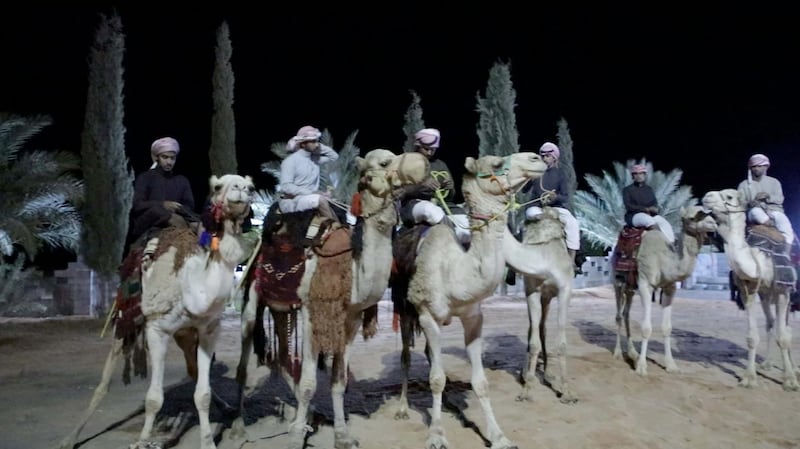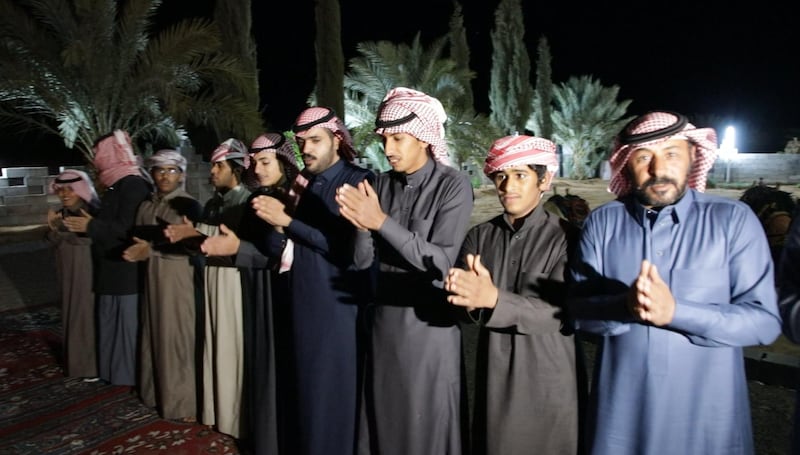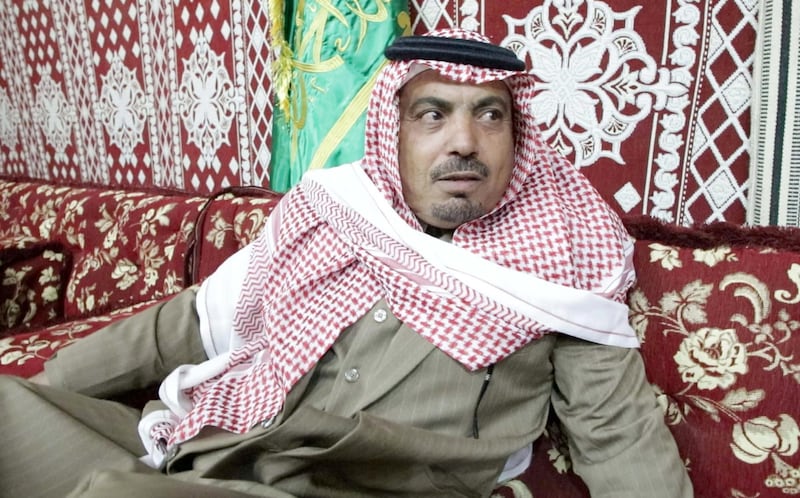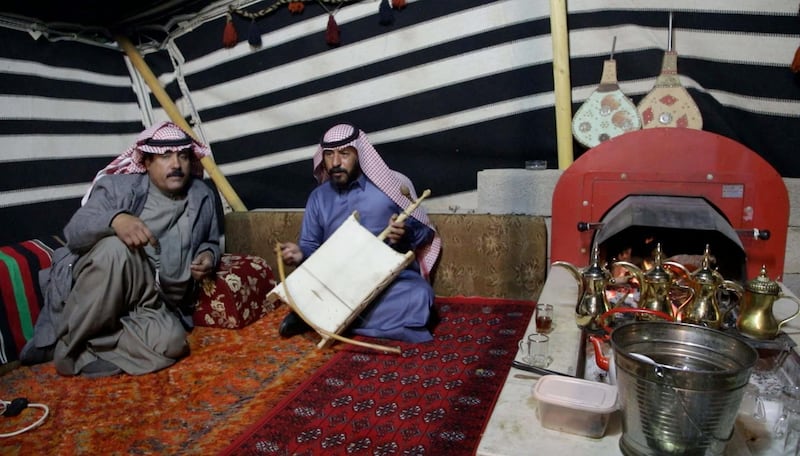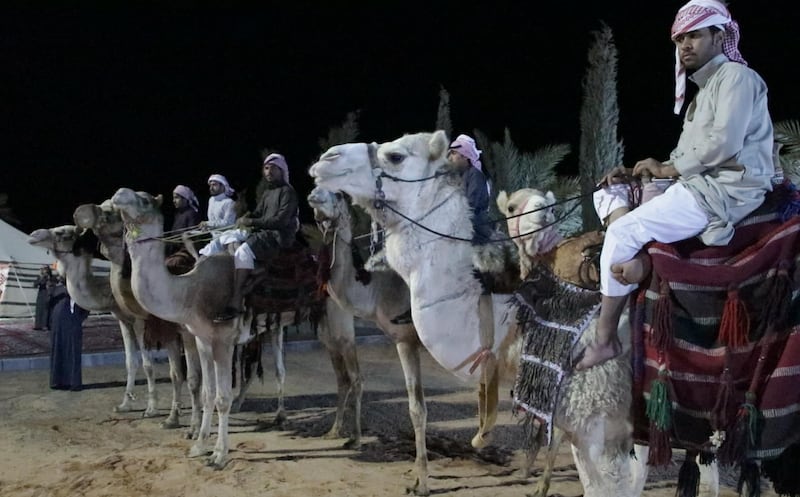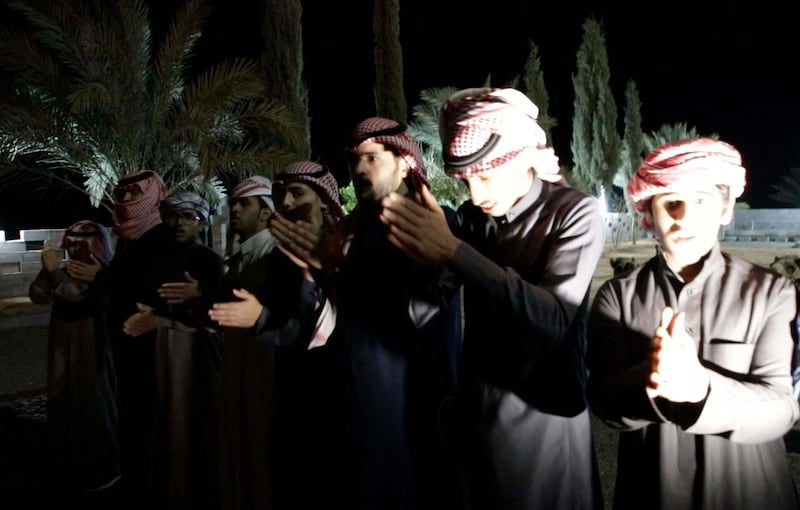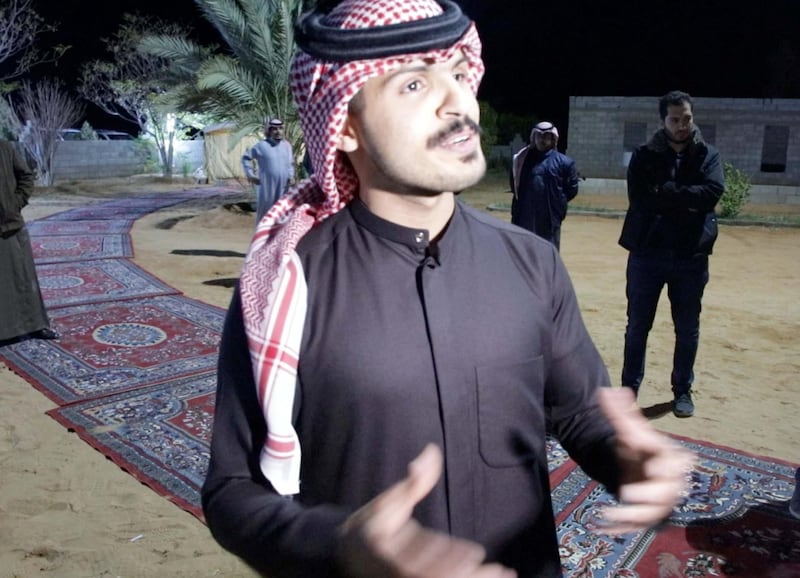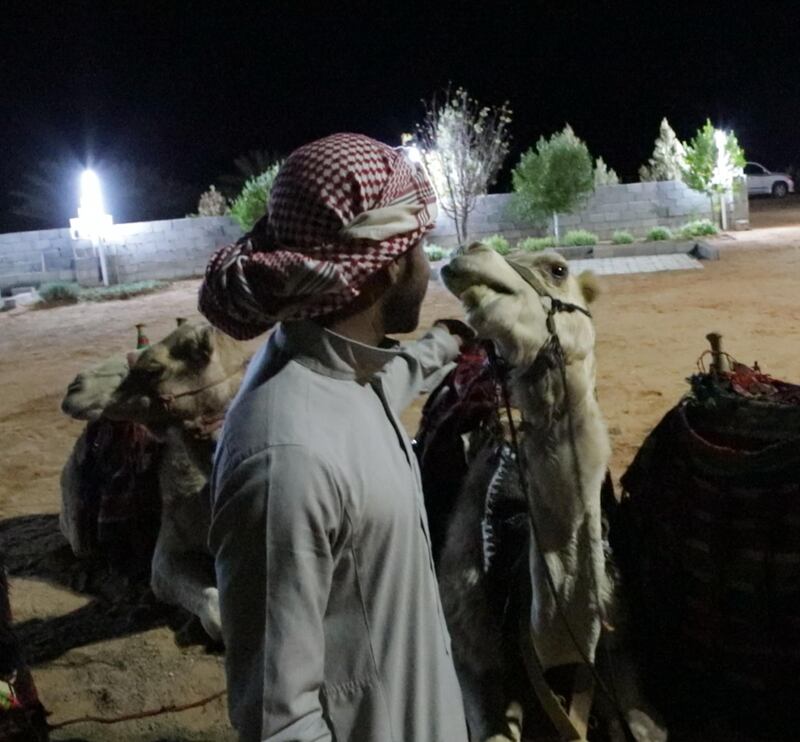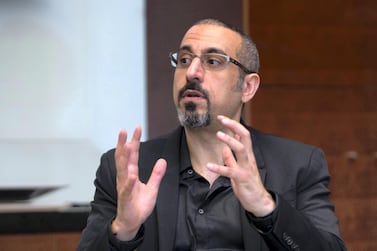There is no such thing as a low-key visit to the Al Faqeer tribe. The group's communal desert compound, also known as an Uzba, is located in the region of Al Majaz, a 50-kilometre drive from Saudi Arabia's historic city of Al Ula.
When the group’s designated leader, Sheikh Al Hammash Al Faqeer, heard about a group of international journalists visiting the region to learn more about the Kingdom’s cultural expansion, he decided to bring a true taste of Saudi culture to them.
When our jeeps rolled into the compound’s driveway just after sunset, we were met with a style of hospitality usually reserved for world leaders and dignitaries. Six men, with full Bedouin attire of gutras and thick dark kanduras, sat astride their camels in a line like sentries.
In the middle was the troupe’s head, who broke out into song as soon as we entered the gates. Standing in the middle of the sandy courtyard was Sultan Al Faqeer. In his late twenties, he stood tall and proud in a dark blue thobe with a gilded pen-clip protruding out of his breast pocket. “This is a song of welcome,” he said.
“Whenever visitors come to us, we try to honour them this way and to show that we appreciate their time and effort to come and see us.” The emphasis on welcoming travellers is deeply rooted in Bedouin culture, he said.
With the desert being vast and wide, particularly in the old days when there was a lack of convenient transportation options, each trek to visit friends and to maintain ties is arduous and acknowledged with great affection. “And you came to see us all the way from Abu Dhabi,” Sultan gushed. “So this makes it even more extra-special. Now, it is time to meet the sheikh.” Sultan gently guided me to the large tent behind him, which was furnished like a typical majlis, with a large red carpet in the middle. I took off my shoes before entering and in the middle of the space sat an elderly gentleman. His eyes, as brown as his garments, glimmered as he waved me over to sit beside him.
Immediately, a father and son duo arrived; the former with a pot of hot, green Saudi coffee, the latter with a bowl full of the delicious dates indigenous to the region. Only once he was satisfied that I had enjoyed my coffee (it was delicious) and date (it was too sweet), Sheikh Al Hammash was ready to talk. “I don’t live here,” he admitted. “I have my own place not too far away, but this is a place where our people gather occasionally, when we can, to discuss and to spend some time together.”
As Saudi Arabia is keen on highlighting its culture to the world, the sheikh said these regular gatherings, which include iftars during the holy month, are essential to preserve the tribe’s social customs. Sultan, who was sat beside the sheikh, nodded vigorously.
As someone who lives and works in Riyadh, Sultan describes his regular return to the tribal heartland as rejuvenating. “It’s a reminder of where I come from and my history,” he said. Just then, more than a dozen other Faqeeries – uncles and cousins – entered the tent.
“Culture is very important to us. For me, it gives me a sense of stability and that feeling that you are not alone.”
While sipping another coffee, I asked Sheikh Al Hammash how he feels about the Kingdom’s plan to boost its tourism potential. I wondered if he’s concerned about the place becoming overrun by tourists, particularly nearby Al Ula, which is playing an important role in the nation’s strategy to open up to the world.
“Why would we be worried?” he said. “We are a very hospitable people. Meeting the other – the visitor or the stranger – is something that we have been doing for years. Also, by tourists coming it will create opportunities for our people to work here. This exchange of culture and knowledge is a really good thing for everyone concerned.”
With that, Sultan whispered something in the sheikh’s ear; his eyes immediately lit up. “Dinner is ready,” he declared. The spread was nothing short of lavish, in every sense of the word; a wide variety of rice and lamb dishes served in trays were presented alongside a variety of regional salads.
Observing my happy and satiated state, Sheikh Al Hammash smiled. “You should come back here with your friends in Ramadan,” he said kindly. “There will be even more food.”
